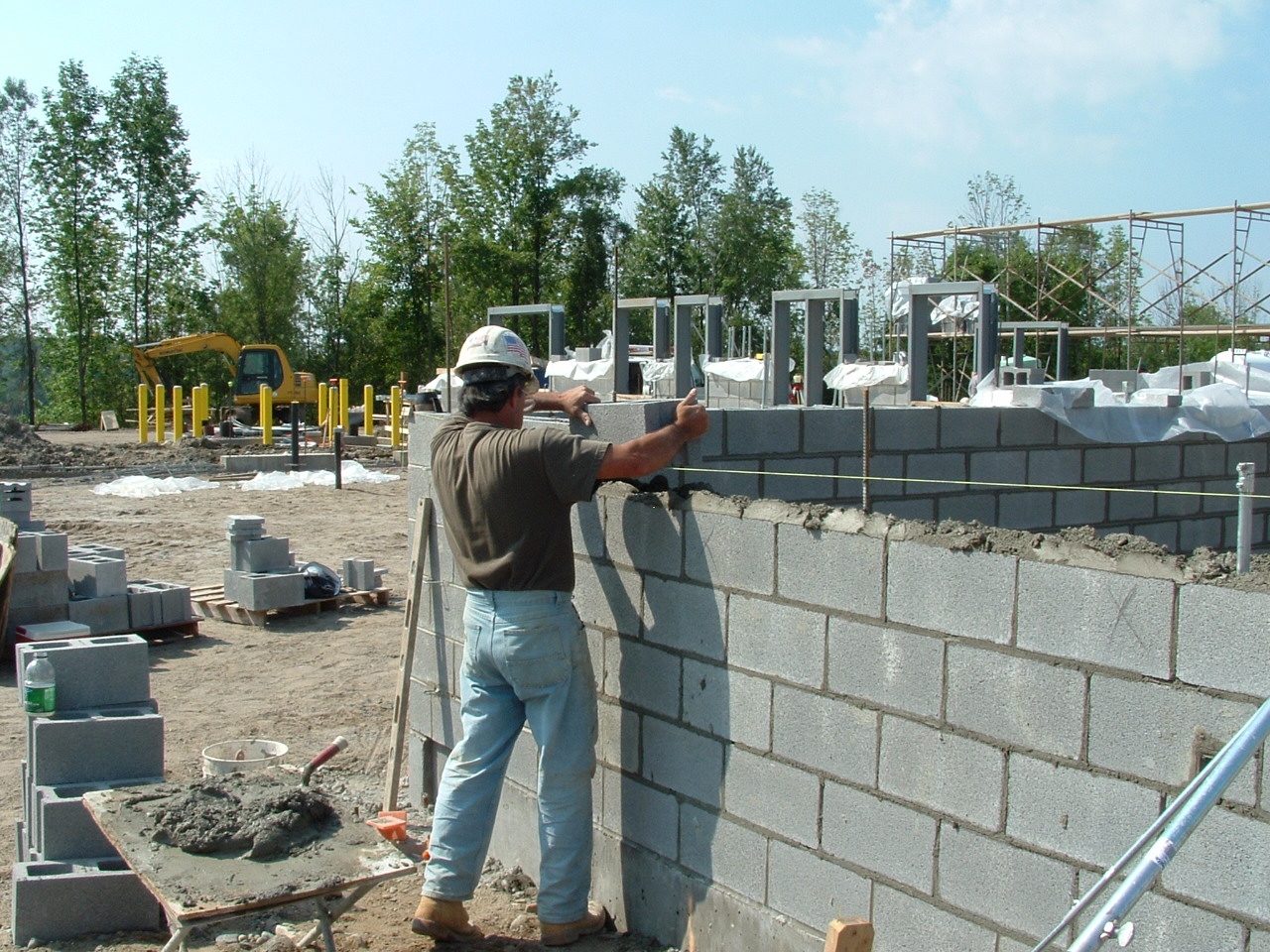Norlite is proud to have been serving the block making industry for over 50 years. Rotary kiln lightweight concrete masonry units are providing many economic benefits for the modern block producing industry. These low density load bearing and non-load bearing units conserve costly energy which is a prime concern to architects and owners. Since thermal resistance varies inversely with the density, lightweight concrete masonry units have substantially better thermal insulation properties than normal weight concrete block as the U factor tables verify. Norlite is a chemically inert manufactured lightweight aggregate which causes no staining, popouts, disintegration or adverse reaction to metal or steel in construction.
Specifications
All aggregates shall be a rotary kiln expanded shale lightweight aggregate. It shall be NORLITE or equal as approved by architect and conform with ASTM Designation: C 331 "Lightweight Aggregate for Concrete Masonry Units". The term Norlite applies to lightweight aggregates produced by the Norlite Corporation, Cohoes, New York. The weight of Norlite concrete from which the masonry units are made shall not exceed 105 lb. per cu. ft. when measured in accordance with provisions of ASTM Designations: C 140 "Sampling and Testing Concrete Masonry Units".

All concrete masonry units shall conform with the following ASTM Designations:
- C 55 Standard Specification for Concrete Brick
- C 90 Standard Specification for Load Bearing Concrete Masonry Units
- C 129 Standard Specification for Non Load Bearing Concrete Masonry Units
Masonry units shall be stacked on planks off the ground, and in wet weather shall be covered to keep dry. Mortar shall comply with ASTM Designation: C 270 Standard Specification for Mortar for Unit Masonry either Property Specifications or Proportion Specifications except that type O and K mortars shall not be permitted.
Thermal Insulation
Concrete masonry is energy efficient. A National Bureau of Standards study reveals that masonry out-performs other systems in dynamic heating and cooling conditions more effectively than steel stud. Masonry's mass delivers vital economy by reducing heat loss in cold weather and heat gain in warm weather. Its inherent thermal storage qualities assist in reducing heating and cooling loads, thus providing substantial long-term savings. The ability of concrete masonry backup to conserve energy is further supported by the fact that insulation utilized in conjunction with a masonry system.










